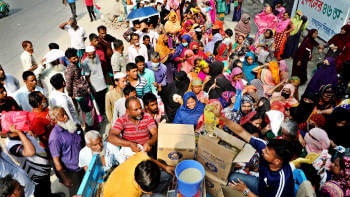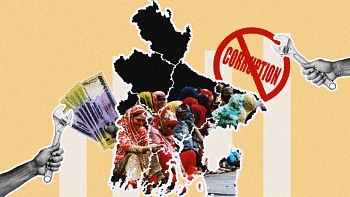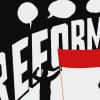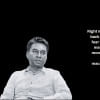Challenges abound for the interim government, but sound policymaking can help

The interim government of Bangladesh stands at a critical juncture, balancing daunting challenges and unforeseen opportunities akin to navigating a labyrinth—requiring the ingenuity and tact of a Daedalus, not the reckless ambition of an Icarus. Tasked with stabilising essential commodity prices to tackle food insecurity, restoring demoralised law enforcement agencies, keeping businesses and financial institutions operational, and rebooting reforms to dismantle entrenched extractive institutions, it must also organise a free and fair election to secure its legitimacy both prospectively and retrospectively. This election is not merely a procedural milestone to be completed perfunctorily, but rather the litmus test for transferring power judiciously to a legitimate political government.
Unlike its predecessor, which clung to power for more than 15 years before being unceremoniously toppled, this administration must traverse a volatile landscape with tight timelines and limited authority. Its success or failure is contingent on how gracefully it avoids overstaying its welcome with the public, leaving behind a legacy that outlasts its tenure.
By definition, the interim government operates in an environment rife with conflicting demands and entrenched interests. It must chart a path through chaos without succumbing to inertia or overaccommodation. The "Garbage Can Model" (1972) by Michael Cohen, James March, and Johan Olsen offers a lens to understand the unique policymaking challenges the government faces. The model highlights the interplay of problems, solutions, participants and choices in situations where clarity is elusive and decision-making often borders on the chaotic. This resonates with the current reality in Bangladesh, where political fragmentation and institutional inertia exacerbate governance challenges. John Kingdon's "Multiple Streams Framework" (1984), a refinement of the Garbage Can Model, sheds further light on this. Kingdon emphasises the convergence of three streams—problems, politics, and policies—as a critical window of opportunity. For instance, stabilising food prices necessitates aligning public demand, technical expertise, and political will. Without this convergence, even the most well-intentioned policies risk falling flat.
While the Garbage Can Model captures the current disorder, alternative policymaking theories provide additional insights. Charles Lindblom's "Incremental Model" (1959), often summarised as "muddling through," emphasises small, pragmatic adjustments over sweeping reforms. While this approach may suit resource-constrained contexts, it risks perpetuating inefficiencies in extractive institutions.
Similarly, Herbert Simon's concept of "Bounded Rationality" (1957) is highly relevant. Decision-makers often "satisfice"—a portmanteau of "satisfy" and "suffice"—by choosing options that are good enough rather than optimal, constrained by limited information, time, and resources. This is evident in the government's balancing act between controlling inflation and maintaining business confidence. However, while satisficing expedites decisions, it may defer essential structural reforms, leaving deep-seated problems unaddressed and untouched.
Aaron Wildavsky's (1986) focus on the politics of budgeting adds another layer of complexity. The interim administration's ability to prioritise funding for essential commodities, law enforcement, and election logistics will be a decisive factor in its success (World Bank, 2024). Effective resource allocation is not just a matter of economics, but also a political act that reflects the administration's priorities and moral compass.
Organising a credible election remains this government's most significant responsibility. This task transcends procedural obligations; it is a moral and political imperative to restore public faith in the democratic process. The stakes are immense: without a free and fair election, the government risks eroding its legitimacy and perpetuating political instability. Addressing voter education, ensuring electoral transparency, and maintaining neutrality in law enforcement are critical. For example, voter education campaigns can counter misinformation, while transparent ballot management and neutral policing can reinforce trust. Failure in any of these areas could derail the transition process and deepen public cynicism about governance.
Beyond immediate priorities, symbolic reforms play a crucial role in setting the stage for long-term change. Actions such as curbing corruption in procurement or making transparent appointments in key institutions may not transform governance overnight, but they send a message that accountability and reform are priorities. Such steps can serve as confidence-building measures, paving the way for deeper institutional changes under a future political government.
The interim government of Bangladesh is not merely managing a country in transition; it is laying the groundwork for a future anchored in democratic principles, economic stability, and institutional integrity. Stabilising the economy, restoring public trust, and organising a credible election are interconnected imperatives that demand a nuanced balance of chaos and compromise. Drawing from the Garbage Can Model, Multiple Streams Framework, and the concept of Bounded Rationality, this administration must adopt adaptive decision-making to tackle immediate crises while keeping long-term objectives in view. Stabilising the prices of essential commodities, rebooting financial systems, and instituting symbolic reforms may not solve all problems, but they can set the stage for more profound changes under a future political government.
The ultimate litmus test, however, remains the organisation of a free and fair election. By addressing electoral transparency, voter education, and neutrality in law enforcement, the government can redefine public expectations of transitional governance. A successful election would not only validate its legacy but also set a precedent for peaceful power transitions, a cornerstone of resilient democracy.
That said, the path forward requires navigating the delicate balance between paralysis in the face of chaos and overaccommodation in the name of expediency. Drawing upon Daniel Kahneman (2011), one may suggest that the advisers of the interim government should engage both System 1 and System 2 thinking in tandem to integrate "thinking fast and slow." While System 1 provides intuitive, rapid responses to urgent crises, it is through System 2's more deliberate and reflective reasoning that long-term reforms and stability are planned. The two systems, far from being opposites, must be used contrapuntally, with quick, intuitive decisions informed by deeper reflection and vice versa.
In this vein, as Kurt Lewin (1957) aptly puts it, "There is nothing so practical as a good theory." The current administration must embody Lewin's assertion by continuously integrating theory into practice. It must combine strategic foresight with pragmatic decision-making to address the multifaceted challenges it faces. By posing questions, critically examining answers, and adapting its approach as circumstances evolve, it can craft a responsive, adaptable strategy that addresses both immediate needs and long-term aspirations. If successful, it will not merely serve as a bridge between administrations but as a catalyst for a stronger, more accountable, and more equitable Bangladesh.
The stakes could not be higher, but with thoughtful policymaking and a commitment to leaving a credible legacy, this administration has the potential to transform a period of uncertainty into a moment of renewal. Governance under constraint can still serve as a beacon of hope for a better future.
Dr Faridul Alam writes from New York City, US.
Views expressed in this article are the author's own.
Follow The Daily Star Opinion on Facebook for the latest opinions, commentaries and analyses by experts and professionals. To contribute your article or letter to The Daily Star Opinion, see our guidelines for submission.

 For all latest news, follow The Daily Star's Google News channel.
For all latest news, follow The Daily Star's Google News channel. 












Comments